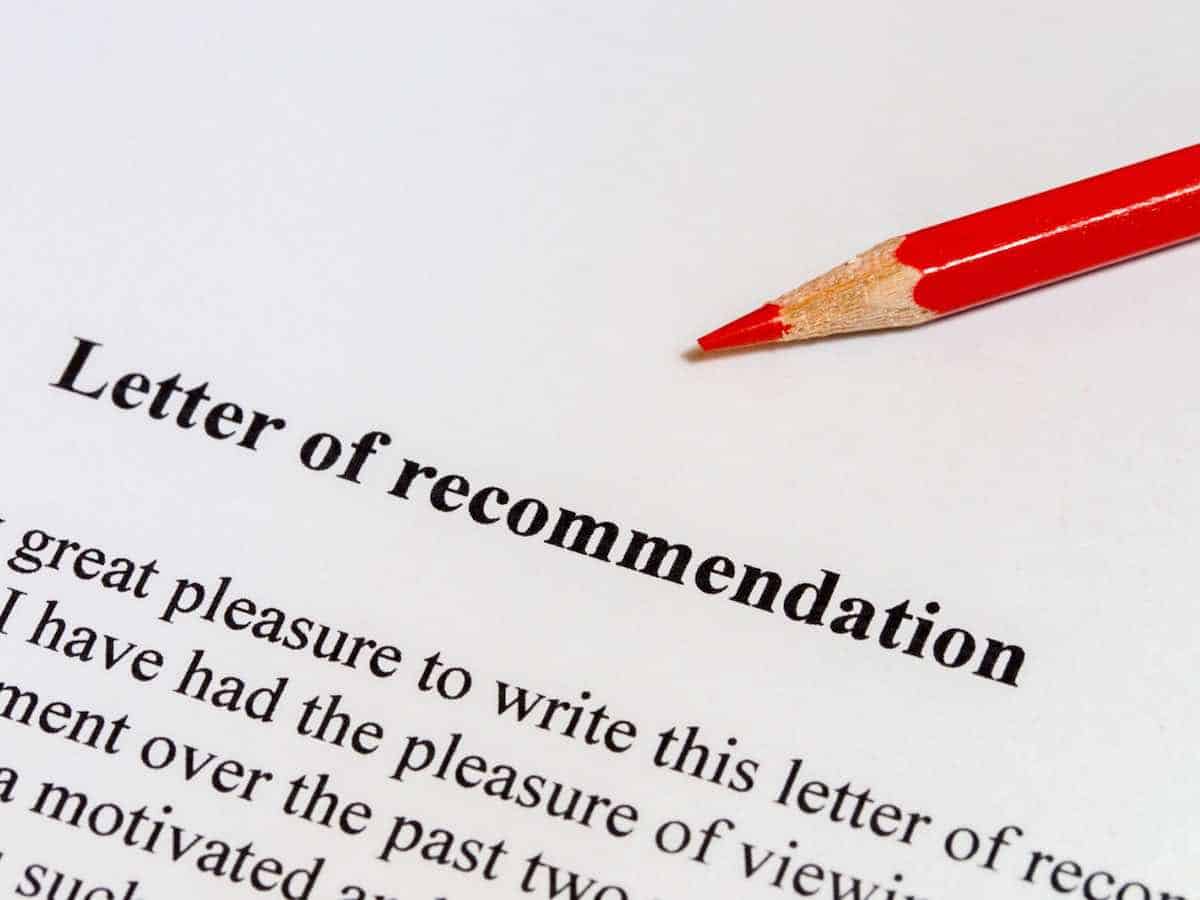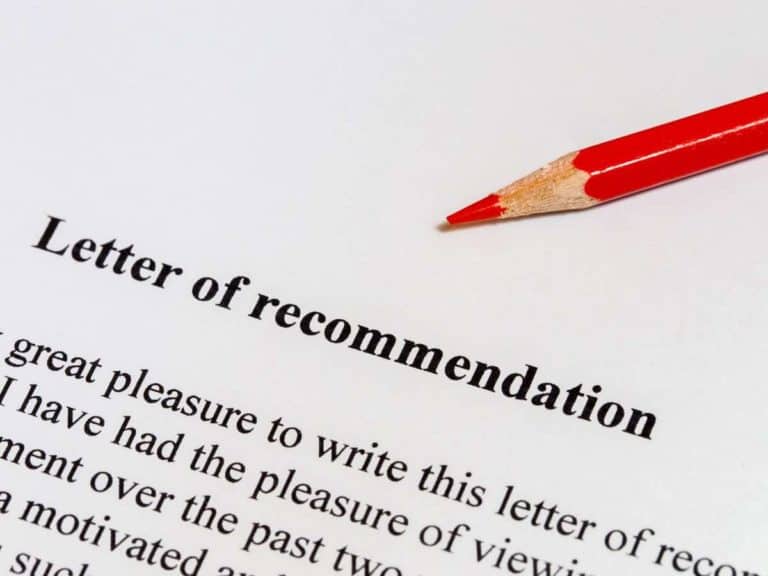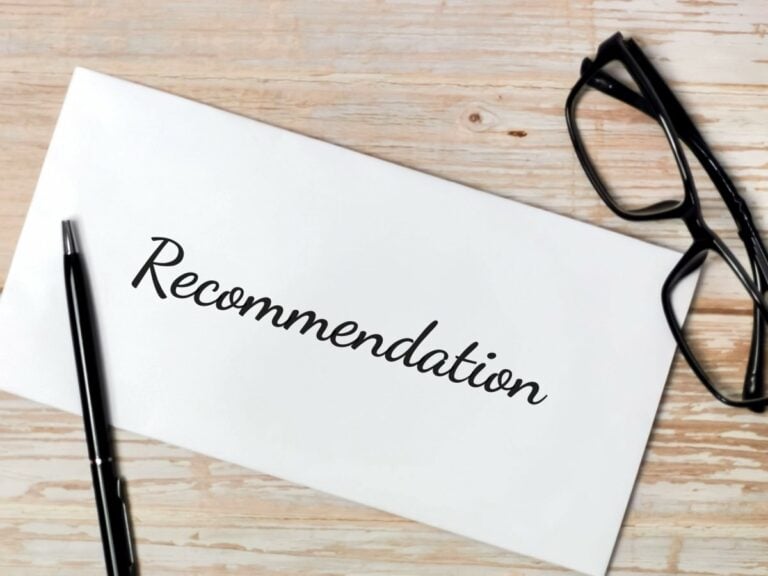How to Remind a Teacher About a Recommendation Letter Deadline
I’ve got three recommendation letters: one from the counselor and two from my Junior year teachers.
And while I didn’t read them, I am sure they were very good because they helped to get into very good colleges (and many offered to join Honors programs).
However, given their very busy schedules, it’s not unlikely for teachers to forget about writing a letter of recommendation.
And it’s not unlikely for a lot of high school teens to be confused as to how to remind the teachers of their choosing about writing the recommendation letters they once agreed to gladly compose.
When’s the right time to reach out?
What if they don’t respond?
Should I ask another teacher to write it?
These pressing questions and the nearing college application deadline can make matters worse for just about any high schooler who wants nothing more than to get admitted to his or her top-choice school where a recommendation letter or two is an important component of the holistic admissions process.
How Do You Make a Follow-Up Email About a Recommendation Letter?
A follow-up email to a teacher about writing a letter of recommendation needs to be short and to the point and assertive yet polite. Just like most other emails, it should have an introduction, body and a conclusion with a call-to-action indication. In some instances, providing relevant information can help expedite the process.
Writing your teacher an email reminding him or her about your recommendation letter can be intimidating.

You have once asked your teacher to give you a favor — and now you will have to ask him or her another favor to execute an earlier favor. But it’s something that has to be done unless you have another recommender in mind.
Sadly, asking another teacher to come up with your recommendation isn’t always the smartest step to take.
What if the teacher who promised to write it was deliberately putting off writing it so that any significant event or achievement of yours before the deadline could be included?
Because of rushing the process, your letter of recommendation might lack the component that could win you an acceptance letter to a selective school.
What if the original recommender wrote your recommendation letter just in time that another teacher of yours agreed to do it?
Then you would find yourself offending a couple of your high school teachers.
But then it could also be that the teacher of your choosing has unintentionally forgotten about the matter due to his or her heavy workload, and failure to send a follow-up email regarding your recommendation could complicate things.
Shortly, I will tell you when the perfect time is to make a follow-up — so don’t stop reading now!
But in the meantime, here’s a sample follow-up email to your teacher about writing your recommendation letter:
Good morning, Ms. or Mr. [name]!
I hope everything is going well on your end.
I am well aware of the fact that you have a very busy schedule. However, I just wanted to remind you that the recommendation letter of mine you agreed to write is needed by [name of institution] by [date of deadline].
Thank you once again for taking the time to be my recommender. Please kindly let me know if you need any additional information or have some questions.
Sincerely,
[Your name]
That’s how short and sweet a follow-up email about a letter of recommendation should be. Depending on your relationship with the teacher, you can be more casual. I am on a joking basis with one of my teachers, so my emails were much more casual and funny.
Something this succinct is beneficial for both parties concerned — it allows the recipient, your teacher, to know the message minus taking up lots of his or her precious time, and it enables you to get the point across quickly and precisely.
When is the Best Time to Send a Follow-Up Email Regarding a Letter of Recommendation?
Generally, the right time to send a follow-up email to a teacher concerning writing a letter of recommendation is 2 weeks before the set deadline. This allows the teacher to have enough time to write the recommendation. Also, it gives the college applicant plenty of time to send subsequent follow-ups without seeming pushy.
First things first: approaching a teacher to ask to be your recommender is best done as early as possible.
Especially if you are eyeing to apply to a selective institution, chances are that you will have to provide a letter of recommendation. In most instances, you may have to submit multiple recommendations, with some from your teachers.
As a result of this, it’s better safe than sorry — asking a teacher to write your letter of recommendation the moment you have decided to pursue an undergraduate degree is smart.
Besides, he or she will appreciate your being an early bird — it’s no fun for any high school teacher to write a recommendation letter while putting up with the dreaded recommendation fatigue.
Unfortunately, for whatever reason, it’s always possible for the matter to slip a teacher’s mind.
This is when the importance of doing a follow-up comes in. And a follow-up about a recommendation letter is best done via email — doing it in person runs the risk of the teacher forgetting about it again or putting him or her in an awkward situation.
But don’t just send a follow-up email anytime you like — the right time to do so is about 2 weeks before the deadline set by the college of your liking.
It’s also important to keep in mind, however, that most colleges know that hopefuls only have so much control over when their recommenders send the letters, which is why they usually give some wiggle room.
So, when should you expect a response from your teacher after sending a follow-up?
Waiting for around 48 hours, as a general rule of thumb, should be done after emailing a teacher about writing a recommendation letter.
This gives him or her enough time to compose a reply or, in some cases, even write the entire recommendation letter — it can take a while for him or her to brush up on your achievements to make the recommendation pop.

But if 48 hours have passed and you just want to make sure that your teacher received your follow-up email, you may consider doing a follow-up in person, particularly when your teacher isn’t as busy.
This may mean approaching him or her early in the morning.
Or you may do so late in the afternoon after his or her last class.
No matter the time of your preference, pick one when it’s possible to have a one-on-one conversation with your teacher — politely inquire if he or she received your email and remember to remind him or her about the deadline.
Just Before You Remind a Teacher to Write Your Recommendation Letter
Writing letters of recommendation for college-bound teens is not the only undertaking high school teachers have.
With a lot on their plate, it’s not unlikely for some of them to accidentally forget about writing recommendations they agreed to do, and getting a follow-up email regarding the matter would be greatly appreciated.
But remember to do it as politely and succinctly as you can to avoid taking up any more of whatever little free time your teacher has. Also, to make the task easier for him or her, offer to provide information about your performance in class.
Related Questions
Can I write my letter of recommendation and ask my teacher to sign it?
No, do not do that. There are processes in place so that students do not see what their teacher wrote about them, and teachers are well aware of this system. However, sometimes the teacher may ask for a brag sheet that outlines your accomplishments to help with crafting the best recommendation letter.
Can I ask a teacher to make slight changes to a finished recommendation letter?
If you use the Common App to apply to colleges, one of the first things you should do is waive your right to review recommendation letters. So, you won’t even know what the teacher wrote and wouldn’t be able to ask for changes.
If you don’t waive, the colleges may be cautious to use them in their admission process because they would not be sure that the teacher was sincere in their assessments.
Disclaimer: The views and opinions expressed in this article are those of the authors and do not necessarily represent those of the College Reality Check.

